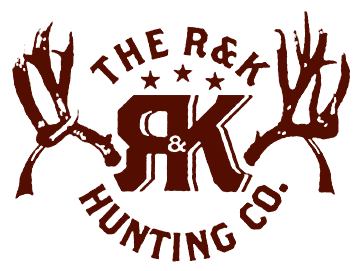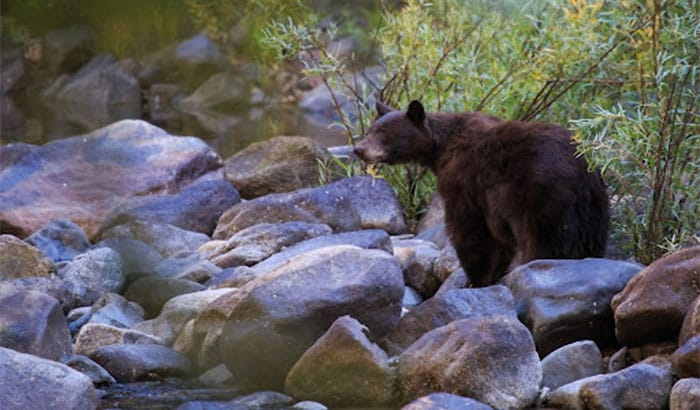When the morning fog lifts over the lush, green landscape, hunters on guided hunts begin their day knowing they play a vital role in maintaining the balance of nature. Equipped with their rifles and a deep respect for the wilderness, these stewards of the land step into the forest.
Their actions, governed by strict regulations and a strong ethical compass, directly influence the health of ecosystems worldwide.
At first glance, hunting might seem like it is only about the pursuit of wildlife. However, those who understand the depth of hunting recognize its significance in ecological management.
Hunters help control animal populations, ensuring that no single species dominates its habitat to the detriment of others. This balance keeps the environment varied and healthy, supporting a wide range of flora and fauna.
Each season, hunters, guided by experienced professionals from hunting companies, venture into the wild with a clear purpose. They target specific animals that, based on scientific research, need population control.
This selective process helps younger, healthier animals thrive, which maintains the entire ecosystem’s vigor and diversity. This thoughtful approach showcases hunting as a sport and a crucial environmental management tool.
In this article, we’ll explore how hunters, including those on guided hunts, contribute positively to environmental stewardship.
Regulated hunting helps control animal populations
One of the primary ways hunters help maintain ecosystem health is by managing wildlife populations. Overpopulation of certain species can lead to serious ecological problems, such as habitat degradation, decreased biodiversity, and the spread of disease.
By following guidelines set by wildlife management agencies, hunters help keep these animal populations in check. For instance, elk hunting guides paired with a hunting company will often work within specific regulations to ensure that elk populations remain sustainable.
These regulations are based on thorough scientific research and aim to benefit the ecosystem’s overall health. When hunters participate in these regulated hunts, they help maintain the balance that keeps forests and grasslands healthy.
This regulation helps preserve native vegetation and water sources, which are crucial for the survival of various wildlife species. Through selective hunting practices endorsed by management plans, hunters target individuals that might otherwise dominate feeding grounds or breeding areas, leading to a healthier genetic diversity.
This careful strategy supports the hunted species and nurtures the myriad of organisms that share the same habitat. Guided hunts, such as those conducted by elk hunting guides, play a crucial role in executing these plans effectively, ensuring that every hunt contributes positively to the broader goals of ecosystem management.

Hunters fund conservation through licenses and fees
Hunters also contribute to conservation financially. The money they spend on licenses, fees, and taxes goes directly into state and federal conservation programs. These funds are crucial for wildlife research, habitat improvement projects, and educational programs that teach the public about the importance of conservation.
A hunting company often emphasizes the importance of purchasing the appropriate licenses and following the regulations because they understand how these contributions support the broader goals of wildlife management. This financial support is vital for maintaining the natural areas that wildlife and humans depend on.
These financial contributions also finance enforcement and compliance efforts, ensuring that authorities uphold hunting regulations and keep wildlife populations healthy. Additionally, the revenue supports the creation of new public lands and the maintenance of existing ones, providing more opportunities for hunting and other recreational activities.
These investments help safeguard the environment, ensuring that future generations can enjoy and benefit from the natural world. By maintaining a sustainable approach, hunters help to ensure the continuity of conservation efforts and the preservation of biodiversity.
Hunting promotes habitat conservation
Beyond financial contributions, hunting promotes direct involvement in habitat conservation. Many hunters participate in habitat restoration projects, plant native species to improve habitat quality and clean up natural areas to ensure they remain viable for future generations.
Guided hunts often include educational components where guides explain the importance of maintaining a healthy animal habitat. For example, elk hunting guides might discuss how managing underbrush and forest health can benefit the elk and other species that share the same habitat.
These lessons help hunters appreciate the broader impact of their actions on the ecosystem. Active participation in these conservation efforts also often leads hunters to advocate for sustainable land-use policies.
They support legislation that protects natural habitats from overdevelopment and industrial exploitation, ensuring that hunting grounds and ecosystems remain intact and flourish.
This advocacy benefits wildlife and strengthens the entire ecological community, preserving biodiversity and promoting a balance that supports both animal and human life. Such involvement underscores the commitment of the hunting community to safeguarding the environment they cherish and depend upon for their sport.

Ethical hunting supports biodiversity
Ethical hunting practices are another way that hunters support healthy ecosystems. By choosing to hunt only mature animals and following the principles of fair chase, hunters ensure that wildlife populations remain genetically strong and diverse. This selective hunting helps stabilize animal populations and encourages a natural balance within the ecosystem.
Hunting companies and guides are crucial in educating hunters about the importance of ethical hunting. They provide guidance on which animals are appropriate to hunt based on their age and health, which helps maintain the population’s overall vitality.
Hunters as environmental stewards
Many hunters view themselves as stewards of the land. They understand that maintaining healthy ecosystems is essential not only for wildlife but for human life as well. This stewardship mindset drives hunters to participate actively in conservation efforts and advocate for sustainable community practices.
Guided hunts often reinforce this stewardship role by demonstrating the direct benefits of conservation efforts. When hunters see the thriving ecosystems and abundant wildlife that result from responsible hunting practices, they are more likely to continue supporting these efforts.
What have we learned?
Through guided hunts, contributions to conservation funding, and ethical practices, hunters play a significant role in maintaining healthy ecosystems. By managing animal populations, funding habitat conservation, and educating others about the importance of environmental stewardship, they help ensure that natural landscapes thrive.
Whether through a guided hunt with experienced elk hunting guides or individual efforts coordinated with a hunting company, hunters contribute to the ecological balance and biodiversity crucial for our planet’s health.
Through these actions, hunters demonstrate that when regulated and conducted ethically, hunting is not simply about the pursuit of game — it’s about respecting and preserving the natural world. The future of hunting and conservation rests on continuing this ethical approach and educating the next generation of hunters about their role in environmental management.
By participating in guided hunts and supporting reputable hunting companies, hunters help maintain the delicate balance of our ecosystems. They prove that responsible hunting challenges the individual and nurtures the world around us, ensuring that forests and wildlife thrive for generations to come.
Choose R&K Hunting as your next guide and tap into a wealth of expertise
Our seasoned guides possess deep insights into wildlife behavior and the finest hunting locales, ensuring your adventure reaches new heights. These professionals spend countless hours in the wild, dramatically increasing your odds of a successful and rewarding hunt.
R K Hunting specializes in crafting custom hunting expeditions designed to meet the individual needs of every hunter. Whether you’re a beginner excited to track down your first big game or an experienced hunter looking to add unique trophies to your collection, we tailor each adventure to your specifications.
Opting for R&K Hunting gives you exclusive access to premier hunting territories, expert guidance, and ethical hunting practices, all combined into one extraordinary adventure. Contact R&K Hunting to plan your next unforgettable hunting excursion.
If you’re eager to explore the wilderness and engage in a hunting experience unlike any other, let R&K Hunting lead the way. With us, you’re not merely embarking on a hunt; you’re stepping into a realm of challenges, education, and unforgettable moments.
Start organizing your adventure with R&K Hunting today, and get ready to be enthralled by the extraordinary discoveries that await in the wilderness.

